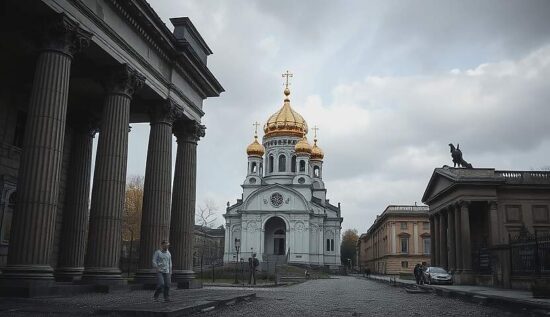The city of Weimar has finally gained possession of a significant historical building, the house of Charlotte von Stein, a friend of the poet Johann Wolfgang von Goethe, after a long legal battle with a Spanish investor. The building will initially remain in the city’s possession, but a decision on its use has yet to be made.
The director of the Weimar City Museum, Alf Rößner, has an idea for the building’s use. He came up with the idea while strolling with his wife, noticing the poor condition of the Russian Orthodox chapel on the Historical Cemetery, where the local community gathers for worship. The chapel is too small for the 150 people who attend and the nearby graves are at risk of being disturbed. The community also lacks sanitary facilities and a new location is needed for the chapel’s restoration.
Rößner suggests connecting the search for a new location for the Russian Orthodox community with the potential new use of the house of Charlotte von Stein. The building, located on Ackerwand, was once a Russian Orthodox church from 1804 to 1909 and the main hall is still largely in its original state.
The director emphasizes the importance of preserving the city’s Russian heritage, citing the many Russian visitors who stayed in the house, including several tsars. He also mentions the significant events in the city’s history, such as the 2002 Petersburger Dialogue between Putin and Schröder and the role of Russian cosacks in saving the city from destruction in 1813.
However, Rößner’s enthusiasm is tempered by his desire to distance himself from the “Russian attack on Ukraine” and “autocrat Putin” which has sparked verbal attacks. His suggestion that the planned church would be open to Orthodox believers of all nations has been met with skepticism.
The idea has already been met with opposition, with a local publisher and SPD city councilor, André Störr, describing the proposal as “perfectly idiotic” and a way to “blame Weimar.” Störr instead suggests a use for the building that “travels into the future” and is concerned about the “content of the future” that the city’s children will be concerned with. He explicitly states his disapproval of the Russian Orthodox Church, led by Patriarch Kyrill, who he claims is “calling for holy war against Europe.





